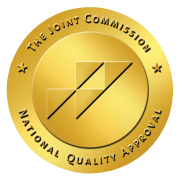Mental Health In Sports: Why Is Depression Common In Athletes?
People all over the world watch professional athletes and admire their physical strength and commitment to their sport. We watch them break bones, tear muscles, and take hard falls. And everyone worries about the physical challenges of these injuries. However, the focus should be on depression and athletes and overall mental health in sports.
2020 Olympics Highlight The Importance Of Mental Health In Sports
It’s not the medal-winning performances or world-record-breaking moments that highlight the 2020 Olympics. It is Simone Biles’s jaw-dropping decision to stop competing in the middle of the women’s gymnastic team event.
As onlookers saw no physical injuries, fellow athletes rallied around her because they can relate to the mental challenges athletes face every day. People see athletes as role models and heroes, but they are human like everyone else.
American sprinter Sha’Carri Richardson, while training for the Olympics, admitted to smoking legal cannabis to cope with the pain of losing her birth mother. The pressure of the sport alone is overwhelming. However, adding a traumatic event can be more than a person can handle.
While anyone can develop depression or anxiety, specific risk factors increase the risk of athletes with mental health issues. These risk factors include:
- Injury
- Overtraining
- Losing competitions
- Concussion
- Retirement
- The pressure of being in the public eye
Aware of the challenges young athletes face, the International Olympic Committee increased mental health resources. They established the “Mentally Fit Helpline” and had psychiatrists and psychologists in the Olympic village.
Student Athletes and Mental Health Issues
On top of the practice and the pressure from coaches and parents, student athletes have homework and social lives. This is a lot of pressure put on teens and young adults. On top of all this, injuries happen. Although injuries typically heal, they can increase depression in athletes.
Athletes with mental health issues may:
- Develop an eating disorder
- Deal with burnout
- Struggle with anxiety and depression
Sports are known for the “walk it off” and “toughen up” mentality. As a result, athletes young and old have kept their mental struggles a secret. But, Simone Biles has shown athletes and non-athletes that mental health is normal and nothing to be ashamed of.
How Common are Athletes with Mental Health Issues?
Mental health struggles among athletes are more common than most people think. The more present and former athletes come forward with their struggle with depression and anxiety, the more we discover the importance of mental health in sports.
For example, 34 percent of current professional athletes struggle with depression or anxiety. In comparison, 26 percent of former professional athletes also struggle with anxiety or depression. The general population struggles at a much lower rate of around 20 percent.
general population struggles at a much lower rate of around 20 percent.
College athletes with mental health issues may ignore symptoms of depression until they worsen. As many as 24 percent develop clinical depression. While moderate to severe depression affects over 6 percent. However, only about 10 percent seek help.
Recognizing Athletes with Mental Health Issues
It is essential to watch for signs of depression and other mental health disorders in your friends, family, and, most importantly yourself. Unfortunately, one in four people experience mental health disorders such as depression and anxiety. However, the added pressure of sports can increase the risk.
Signs of depression in athletes include:
- Poor performance
- Irritability
- Anxiety
- Sadness
- Lack of self-esteem
- Fatigue
- Failing to recover after injury
- Loss of interest in fun activities
- Isolation/withdrawal
- Change in personality
- Change in sleep pattern
- Changes in eating habits
- Problems concentrating
- Alcohol abuse
Ignoring the signs and symptoms of depression in athletes can be life-threatening because untreated depression can lead to thoughts of suicide and self-harm. If you or someone you love is struggling with depression, it’s crucial to seek help immediately.
Challenges Athletes Face That Leads To Depression
The pressure to do well in sports begins at a young age. And in the beginning, kids have fun and enjoy learning to play. But the pressure to have game-winning performances increases as kids hit high school.
These pressures can lead to the following:
Perfectionism
While it is admirable to be dedicated and want to be perfect, we are all human, and the stress of perfectionism leads to more significant problems. Athletes often overtrain to improve their performance. However, this can lead to injuries. As a result, athletes may struggle with depression and feeling worthless.
Fear
Athletes often struggle with the fear of disappointing their families and coaches. They fear they are “not enough,” so they train harder. In addition, being in the public eye means everyone will see if they lose.
Injuries
Every athlete’s worst fear is getting injured. Injuries can mean weeks or months in physical therapy. The inability to play, the worry over getting better, and the challenges of recovery can increase depression in athletes.
Treating Mental Health In Sports
Many sports teams and coaches understand the struggles their players go through. Not only the physical struggles of the sport, but they also recognize the mental challenges of competition.
The NBA, for example, developed programs and initiatives in 2015 that provide players with comprehensive mental health services. Each year they continue improving and being recognized as a leader in mental health around the world.
How Can Psychotherapy Help Athletes With Mental Health Issues
Psychotherapy or individual therapy is crucial to treating any mental health disorder. Sitting down one-on-one with a therapist helps work through personal and professional issues without judgment.
Treating mental health in sports can help athletes:
- Improve performance
- Heal past mental or physical trauma
- Build self-esteem
- Increase motivation
- Cope with injuries
- Improve communication
- Set realistic goals
- Develop self-care routines
An athlete generally has an excellent support team. However, an athlete may have a struggle they are ashamed to tell their coach or family. For this reason, psychotherapy offers privacy and confidentiality.
Don’t Struggle Alone Let Lido Wellness Help
If you or a loved one is struggling with depression or any mental health issue, it is crucial to seek help. We can help you find a balance between being the best and still making self-care a priority. Contact us today to find out more.
References:
https://www.athletesforhope.org/2019/05/mental-health-and-athletes/



